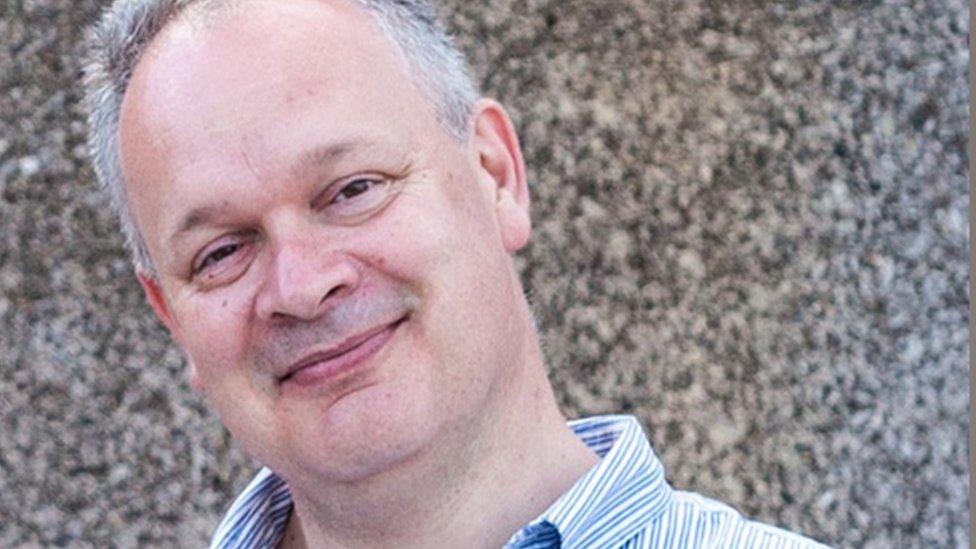Law will let young people find sperm donors
- Published
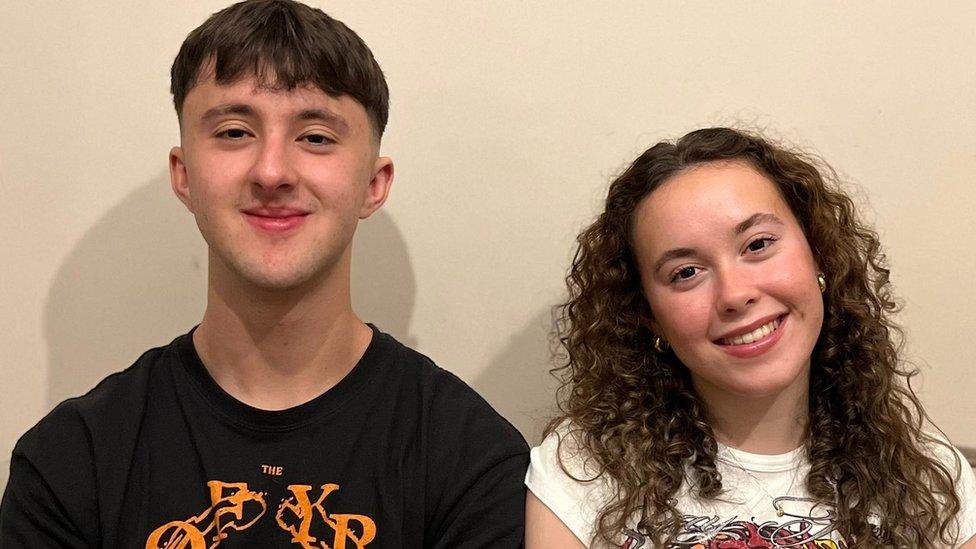
Matthew and Phoebe Betts have grown up knowing they were conceived using a sperm donor
People born using a sperm or egg donor in the UK, who turn 18 after Sunday, will be able to find out the identity of the donor because of a change in the law.
Matthew and Phoebe Betts have known since they were two that they were conceived by a sperm donor.
The 16-year-old twins have spent their lives wondering who he is.
When they turn 18 next year, they will be able to apply to find out his name and last-known address if they want to try to find out where they came from.
The twins know their donor's build, his eye and hair colour and some of his hobbies, such as photography, swimming and the guitar. They also know he has a masters degree in business.
Up to now, the twins have been able to ask the UK fertility regulator for some basic details about their donor.
Their parents had used sperm from a UK clinic to conceive, so they were surprised to be told the donor was Colombian.
Their newfound partial South American heritage is something the twins, from Mansfield, Nottinghamshire, have embraced.
Phoebe, who is a keen dancer, has since researched Colombian dances and recipes. She also thinks it explains why she has curly hair.
"I think it's really cool that part of us is from a different country," she said.
Matthew and Phoebe are among a number of people who - like me - were donor-conceived. I interviewed them for a new BBC documentary, My Sperm Donor and Me.
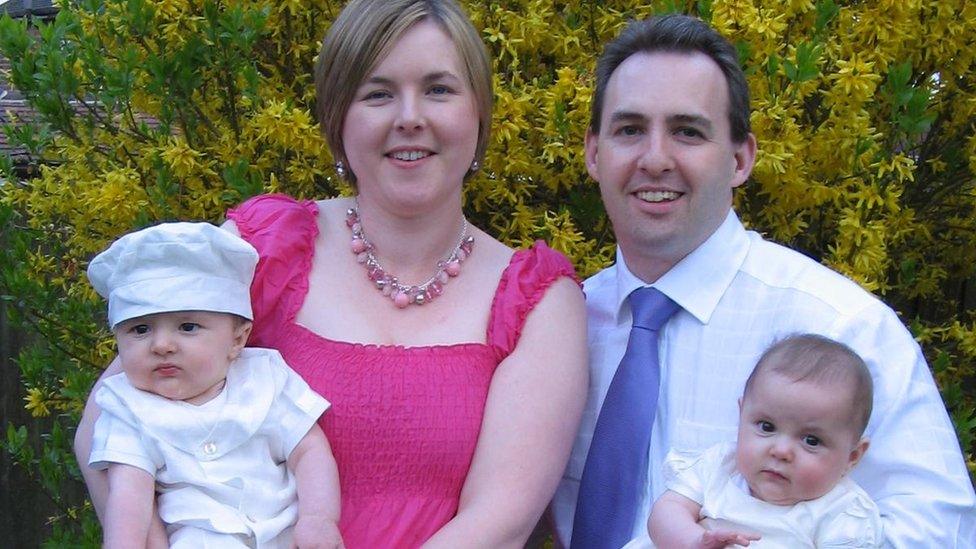
Sarah and Shaun Betts delayed their IVF treatment so their children could find their sperm donor if they wanted to
More than 70,000 donor-conceived children have been born in the UK since 1991, external. In 2005 legislation came into force, removing anonymity for anyone donating sperm, eggs and embryos after that date.
The first group of young donor-conceived people affected by the change will be turning 18 from 1 October. At that point, they will be able to find out "identifiable information" about the donor, external - their name, last known address, date and place of birth.
Matthew and Phoebe's parents, Sarah and Shaun, deliberately waited until the 2005 law change before starting fertility treatment, so their children could eventually access this information.
"We just really felt it wasn't fair on any children we might have had to deny them that opportunity," said Sarah.
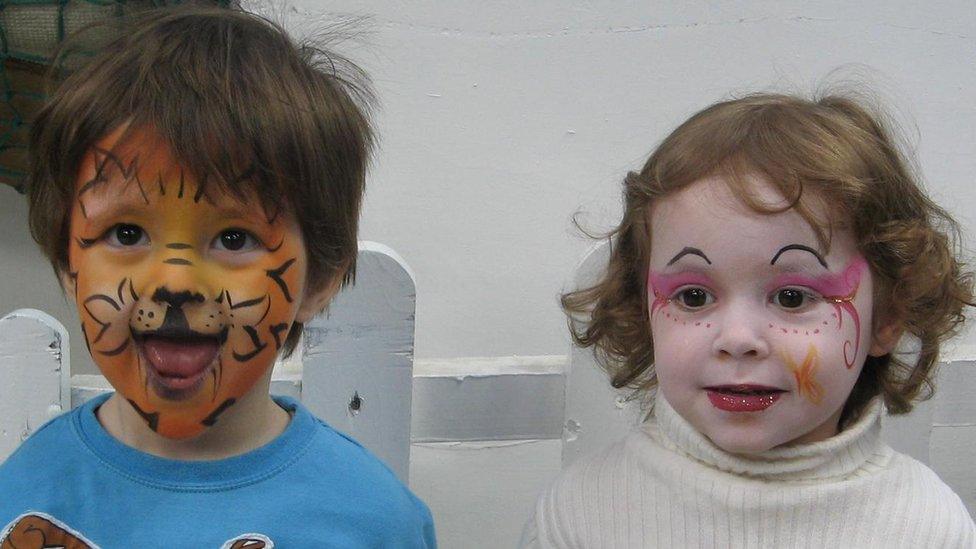
Matthew and Phoebe Betts as young children
The twins grew up knowing the facts about their conception. "It's just something that's always been very natural to talk about," said Phoebe.
Matthew and Phoebe are also hoping to track down and meet some of their 10 half-brothers or sisters, known to have been born from their donor's sperm between 2006 and 2008.
"We know there are half-siblings as they are recorded," said Shaun.

There are thousands in the UK conceived using sperm, eggs and embryos - and they want to be heard.
Watch reporter Tink Llewellyn's journey on My Sperm Donor & Me now on BBC iPlayer

By the end of 2024, about 766 young people will have become old enough to be able to request identifying information about their donor from the UK's fertility regulator. By 2030, this will rise to almost 11,500.
For donor-conceived people like me, this is amazing to hear.
However, it's also bittersweet - because those of us born before 2005 won't benefit from the change in the law.
If we want to find our donors - and I know not everyone does - our only hope is to upload information from home DNA testing kits and cross our fingers that our donors have done the same.
We can also ask the regulator, Human Fertilisation and Embryology Authority (HFEA), just in case the donor has voluntarily come forward to ask for their anonymity to be lifted.
My sperm donor story
I was 17, pregnant and living in south Wales with my dad, Derek, when he sat me down one evening and said he and my mother had used a sperm donor to have me.
I went to bed that evening crying, not knowing what to think or do with the information.
That was it. It was never spoken about again in my house, until eight years later when we both decided to talk about it once again. We even discussed it in a TV documentary.
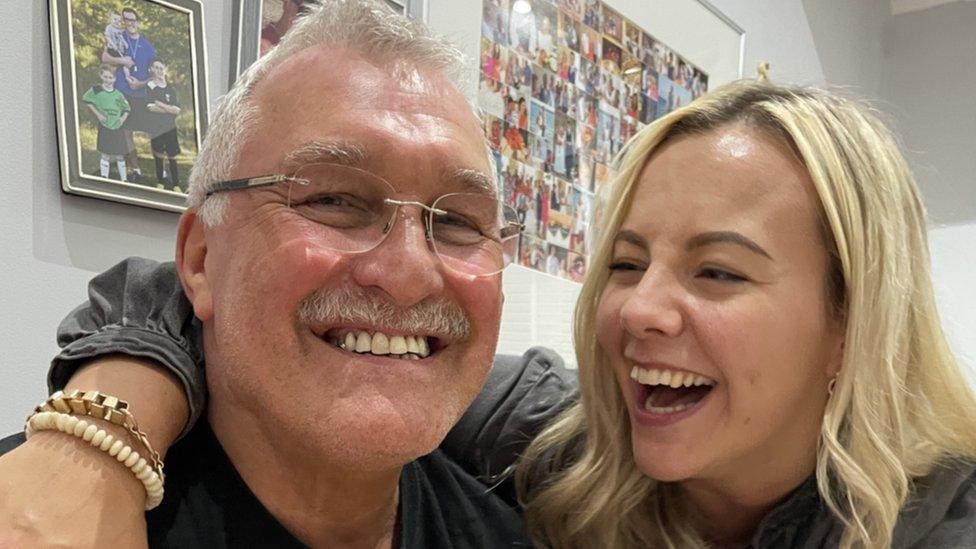
Tink's dad told her she was donor-conceived when she was 17 and six months pregnant
Then it all blew apart for me when Dad, who was my absolute world, contracted lung cancer and died, aged 68.
I was devastated, but his death in 2022 also lifted a little fear. I had always felt guilty about wanting to know more about what I saw as a missing half of my family.
Now that feeling has been lifted, and I know my dad would be so proud of the journey I've been on.
One of the best experiences for me in making My Sperm Donor and Me was finally finding a donor sister. We matched on a DNA testing website, and hit it off straight away.
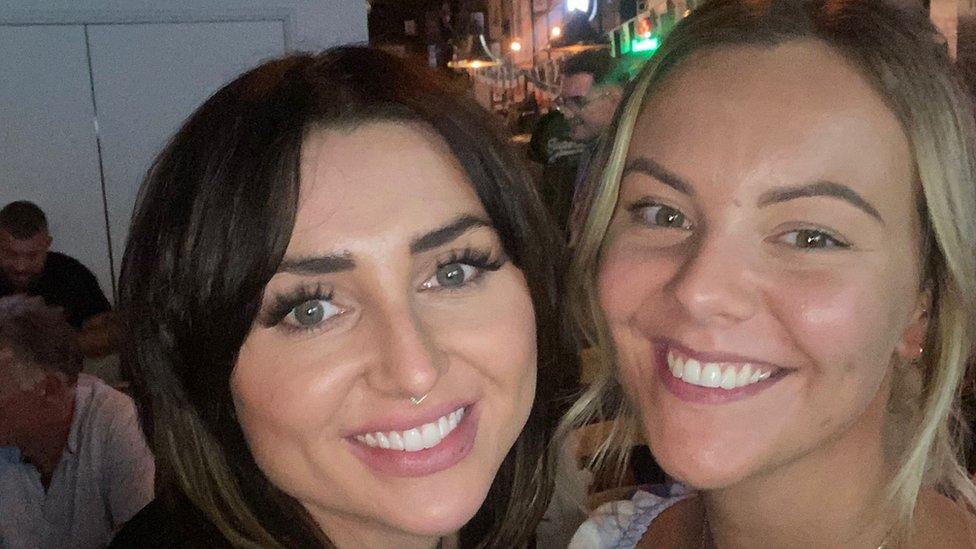
Half-sisters Ria and Tink remain in touch and plan to meet up again soon
Ria and I met at a pub in my home city of Cardiff. It was like we had always known each other.
She's 28, is an engineer and has a dog. Our birthdays are two weeks apart and we grew up just 20 minutes away from each other in south Wales.
Ria definitely filled in that missing piece of the puzzle for me.
Matthew and Phoebe hope that knowing more about their donor will do the same for them.
It's something their parents also support.
"We've got two amazing children," said Shaun. "Our lives are different as a result of that person's kindness so it will be nice to shake him by the hand and say, 'thank you'."
But not everyone supported the removal of anonymity for donors.
Sian Youde, from Cardiff, who donated eggs in 2021, never wanted children of her own, but was keen to help a family struggling to conceive.
She said the fact any children born as a result would have known her name after they turned 18 "doesn't thrill me if I'm being honest".
"My whole reason for doing this is to help a family to have a bigger family. I don't feel like I need to be part of that."
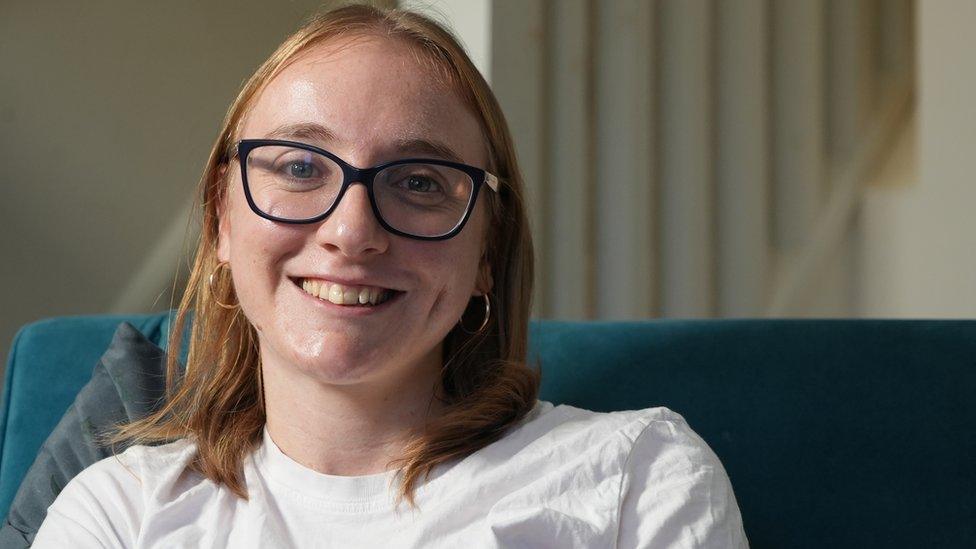
Sian Youde said the removal of anonymity for donors "doesn't thrill me"
She added: "I would be there for them if they needed like an organ or something, you know, like all my medical stuff, but that would be as far as it went.
"If someone did [come looking for me] at 18 I, I might not give them the reaction they want. But it's not it's not from a place of, like rejection or anything. It's because I'm just not their mum, I've done this so that someone else can be."
My own donor has opted to stay anonymous, so hearing Sian's perspective has been helpful for me.
Sian recently found out no babies were born from her donation and the clinic where she was treated said there were no more of her eggs left.
She said she had a little cry - she wasn't sad for her, but for the people she'd tried to help.

Do you plan to look for your egg or sperm donor? Share your experiences by emailing haveyoursay@bbc.co.uk, external.
Please include a contact number if you are willing to speak to a BBC journalist. You can also get in touch in the following ways:
WhatsApp: +44 7756 165803
Tweet: @BBC_HaveYourSay, external
Please read our terms & conditions and privacy policy
If you are reading this page and can't see the form you will need to visit the mobile version of the BBC website to submit your question or comment or you can email us at HaveYourSay@bbc.co.uk, external. Please include your name, age and location with any submission.

PARANORMAL: Chilling ghost stories and words appearing on the walls...
UNMISSABLE DRAMA: When the Wolf is at the door, be very afraid

- Published29 October 2019
